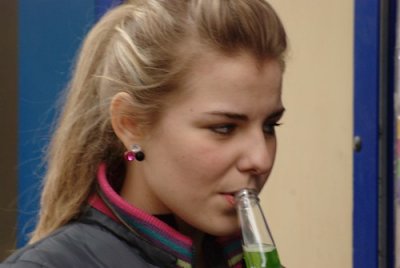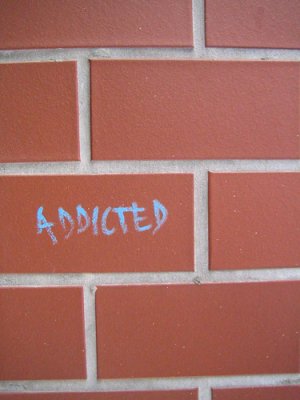Is Addictive Personality Disorder the Real Problem?

By: Andrey
Do you wish you had more control of your life and habits? But wonder if an addictive personality disorder is the problem?
Editor and lead writer Andrea M. Darcy explores what an addictive personality is or isn’t, and what you can do next if there is a problem.
What is addictive personality disorder?
Addictive personality disorder is a theory about why we might have several bad habits we can’t resist.
But addictive personality disorder isn’t a clinical diagnosis, nor is an ‘addictive personality’. There is actually no research proving that addiction is a personality trait or set of exact personality traits.
Alan R. Lang was the psychologist whose 1983 study was seized by the media and triggered the idea of an ‘addictive personality’, when it suggested contributing personality ‘factors’ (not traits) for addiction. But he himself concluded that,”there is no single, unique personality entity that is a necessary and sufficient condition for substance use.’
And there is also the small issue that the definition of ‘addiction’ itself is still debated.
All this aside, it is true that there is a list of several personality traits that, in combination, can mean you are more likely to develop addictions, or lead to a personality disorder that makes you more susceptible.
And these personality traits or disorders, combined with things like genetics, meet with difficult environments that then become a recipe for addiction.
The dangers of the ‘addictive personality’ myth
Clinical professor of social work Maryann Amadeo points out in her paper ‘the Addictive Personality’ that the idea of an ‘addictive personality’ reinforces “the pathologising, stigmatising, marginalisation, and homogenising of individuals.”

By: amir appel
And you can be using the concept against yourself, if you are:
- feeling beyond help ‘because you have an addictive personality’
- or using it as an excuse to not even try to seek support
- letting an ‘addictive personality’ define and limit who you are
- denying or refusing to explore difficult past experiences and triggers as it’s ‘just your personality’
- or, in some cases, assuming you aren’t an addict (when you are) as you aren’t the ‘type’.
Addictive personality traits and disorders
So what are those personality traits that could make you more likely to become addict? Again, there is no exact formula here. But the list includes:
- impulsivity
- difficulty delaying gratification
- easily stressed or depressed
- risk taking behaviour and a desire for new experiences
- neuroticism (anxiety, easily negative)
- low self-esteem
- prone to social isolation over connection
- attracted to non-conformity
- carelessness/ not prone to taking responsibility.
As for personality disorders, there are some that involve quite a few of the above traits and are connected to a higher risk for addiction. These include borderline personality disorder and antisocial personality disorder.
Genetics and addiction
Genetics also can mean you are more vulnerable. You might genetically struggle to metabolise alcohol, or have a genetic disposition to be anxious and sad and therefore be more likely to seek solace in substances.
Of course a genetic dispositions need environments that trigger and feed them to become a problem.
This is illustrated by a study led by Italian researcher Francesca Ducci looking into the MAOA gene (also called ‘the warrior gene’ as it makes us assertive and aggressive) and it’s relation to alcoholism and abuse. In the women she studied, those with low MAOA activity who were abused were very likely to become alcoholics, whereas those with high MAOA activity who suffered abuse weren’t. It took both the gene and the trauma for the pattern to exist.
Environmental influences that lead to addiction
So what sorts of ‘environments’ could leave you vulnerable to addiction? The ones that leave you vulnerable in general.
The biggest is childhood trauma. This could be physical or sexual abuse. Or you might have lived through a terrifying experience, such as an accident, or watching someone get attacked.
Your life might have been filled with difficulties that were too much for any child, called ‘adverse childhood experiences’ (ACEs). These include a parent being mentally ill or an addict, emotional or verbal abuse, neglect, parents divorcing, or a parent going to jail.
Not feeling loved is its own kind of trauma, resulting in attachment issues as an adult. If your parent was emotionally unavailable, or you couldn’t trust them, or they made you ‘earn’ love by being what they wanted, you can end up anxious or unable to connect and with low self-esteem, and things like drugs or alcohol can become a respite.
And bad parenting has been linked to addiction. This includes constantly negative communication, parental inconsistency, unrealistic expectations, and parental denial.
But I really do have an addictive personality

By: rick
It can certainly feel that way.
If you have one addiction, you are more likely to then develop another. You might be an alcoholic sex addict, or a workaholic with an overeating problem.
And often, if we try to give up an addiction, we end up replacing it with another. Alcoholics often start bingeing on sugary foods when trying to quit.
But again, these come down to a combination of other reasons and ways of coping that depend on many factors, not on your personality.
What to do if you feel you have an addiction problem
Addiction is an ‘umbrella’ word. It covers many different difficult habits, an immense amount of research, and also a lot of controversy over what it is and isn’t.
But if you have a habit that:
- you can’t seem to control or stop
- and you are preoccupied with
- it’s negatively affecting your life
- and you seem to need more of it, the longer time goes on?
Then instead of wondering why you are struggling, or if it is or isn’t addiction, and is or isn’t down to your personality traits, why not just seek some support?
Time to face your addictive habits head on and claim back your life and peace of mind? We connect you with top London addiction counsellors. Or use our booking site now to find UK-wide addiction therapists as well as online addiction counsellors you can talk to from wherever you live in the world.
Want to ask a question about addictive personality traits and addictive personality disorder? Or share your addiction experience? Use the comment box below. Note we monitor comments and do not publish advertising or harassment of other readers.
 Andrea M. Darcy is the editor and lead writer of this site. She studied person-centred counselling and coaching and has hopes to one day by a clinical hypnotherapist. Find her on Linkedin.
Andrea M. Darcy is the editor and lead writer of this site. She studied person-centred counselling and coaching and has hopes to one day by a clinical hypnotherapist. Find her on Linkedin.
References
(2015). The addictive personality, Substance Use & Misuse, 50:8-9, 1031-1036, DOI: 10.3109/10826084.2015.1007646
Reilly, d.M. Drug‐abusing families: intrafamilial dynamics and brief triphasic treatment. In: Kaufman, E., and Kaufmann, P., eds. Family Therapy of Drug and Alcohol Abuse. 2d ed. Boston: allyn and bacon, 1992. Pp. 105–119.




